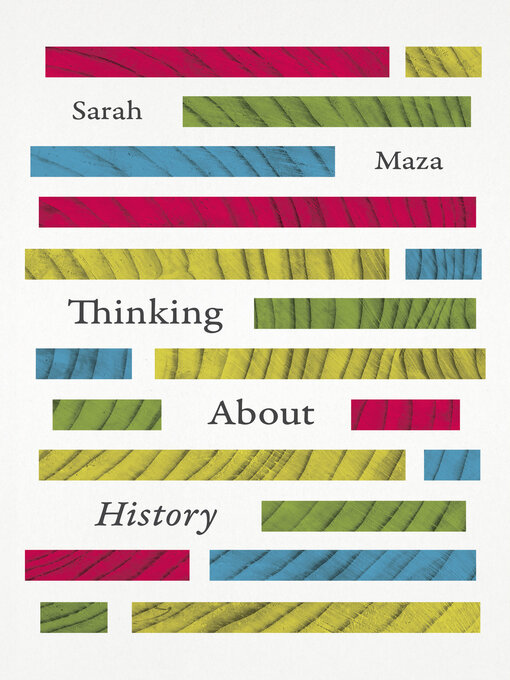-
Description
-
Details
Designed for the classroom, Thinking About History is organized around big questions: Whose history do we write, and how does that affect what stories get told and how they are told? How did we come to view the nation as the inevitable context for history, and what happens when we move outside those boundaries? What is the relation among popular, academic, and public history, and how should we evaluate sources? What is the difference between description and interpretation, and how do we balance them? Maza provides choice examples in place of definitive answers, and the result is a book that will spark classroom discussion and offer students a view of history as a vibrant, ever-changing field of inquiry that is thoroughly relevant to our daily lives.

Kindle Book
- Release date: September 18, 2017
OverDrive Read
- ISBN: 9780226109473
- File size: 856 KB
- Release date: September 18, 2017
EPUB ebook
- ISBN: 9780226109473
- File size: 856 KB
- Release date: September 18, 2017
PDF ebook
- ISBN: 9780226109473
- File size: 3828 KB
- Release date: September 18, 2017
Formats
Kindle Book
OverDrive Read
EPUB ebook
PDF ebook
subjects
Languages
English
